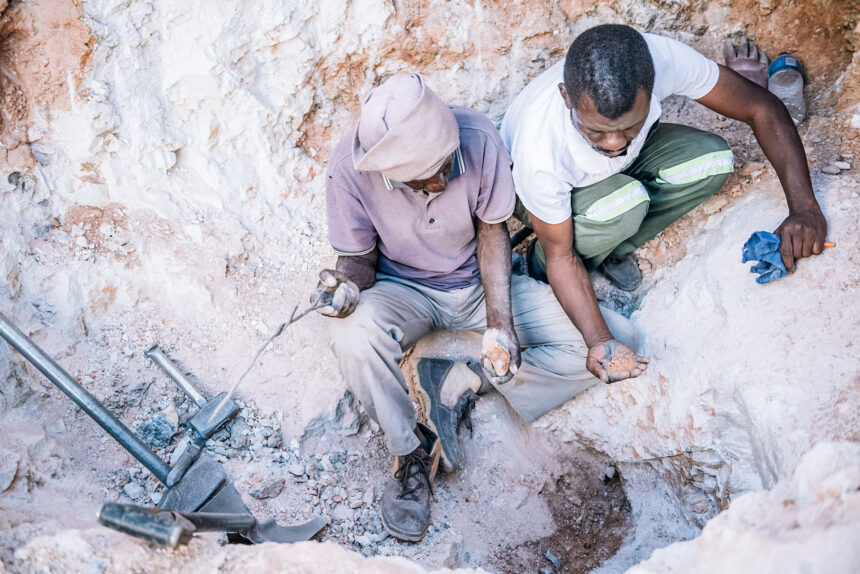Deputy executive director of the Ministry of Mines and Energy Erasmus Shivolo said to date, there are about 1078 registered small mining claims in the whole country. This he said is a huge number compared to the population.
“As you know, small-scale miners (SSM) generally work in groups of five to eight people or sometimes more on each claim. Therefore, countrywide, we can estimate that between 5 000 – 8 000 people or more are engaged in SSM. This is a significant number for a country with a small population like ours,” said Shivolo last month while handing over protective equipment to small miners in Xoboxobos, Erongo region.
Shivolo further urged all who are engaged in illegal mining activities to desist from this practice and urged mining claim holders to report illegal mining activities to the nearest police.
Small-scale mining is often seen in a negative light in many jurisdictions. This is because it is often associated with illegality, environmental pollution, and degradation among others.
The official noted government has been trying to dispel this negative reputation by encouraging and assisting the miners to apply for mineral rights to operate legally. “We are aware that our efforts have not wiped out illegal mining, however, we continue to try our best. I would like to indicate that we have received some concerns about illegal miners/mining activities in this area,” he said. Shivolo stressed that government is committed to the development of this sector. He stated that the ministry offers geotechnical support to these miners in the form of assistance with geological information, geochemical analysis, mineral rights application, and handling of disputes arising from access to private farmland.
Meanwhile, parliamentarians are of the opinion that small miners are being neglected by the mines’ ministry.
In the joint report presented in the National Assembly in April this year by committees of natural resources and economics as well as public administration, members stated that due to the centralised approach of the ministry’s activities, miners face challenges and high costs when applying for licences.
Application fees for small-scale exploration and mining rights were adjusted from N$50 to N$250 in 2021. However, the report stated that these fees need to be reviewed again to accommodate more Namibians who may not be able to afford them.
“These fees were determined not to include small-scale miners, but rather to leave them out. This is because they cannot afford the fees those big companies can afford,” asserted Tjekero Tweya, chairperson of the parliamentary committee.


